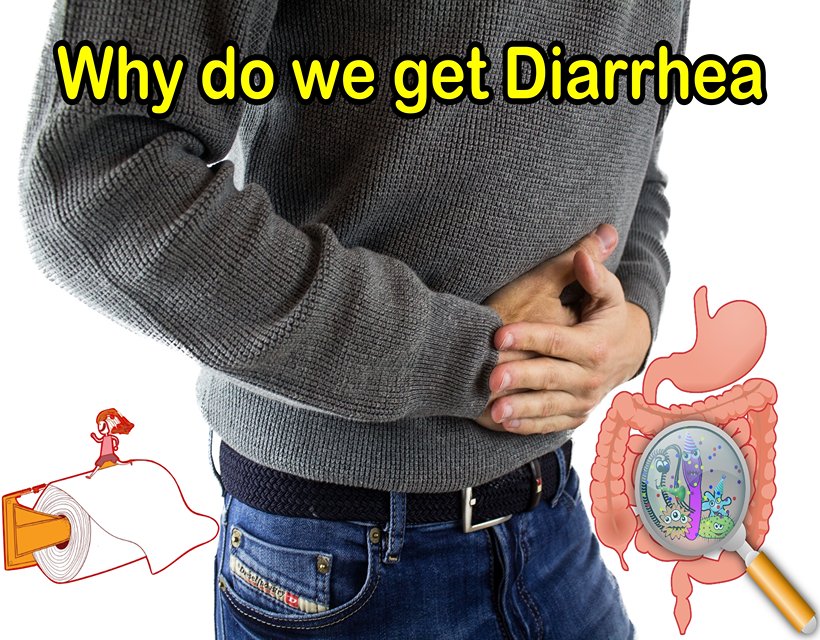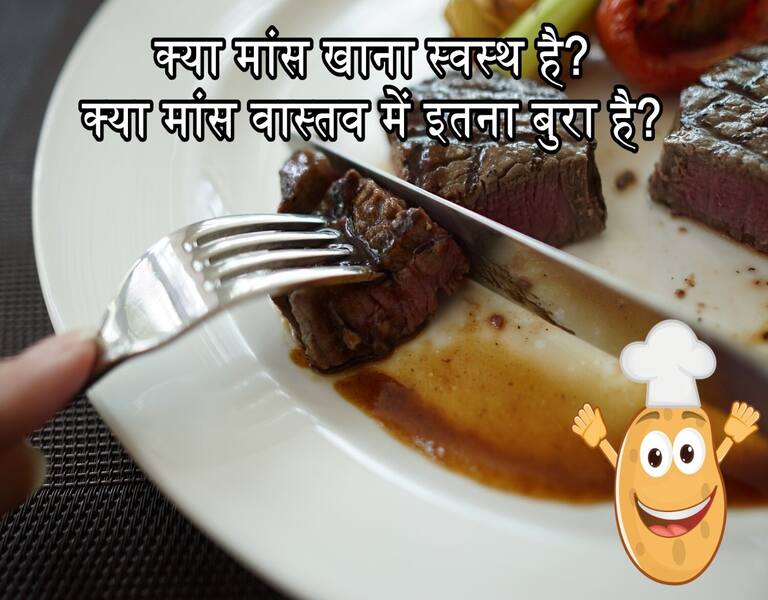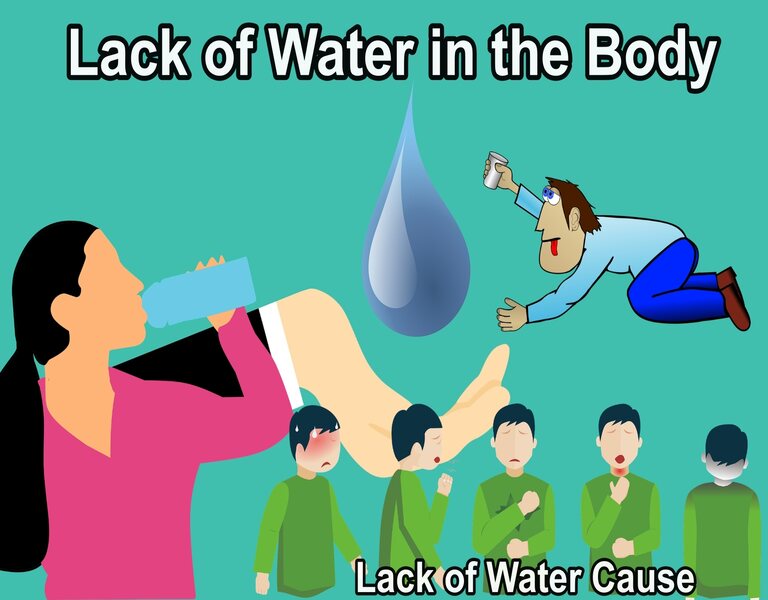Table of Contents
Why do we get diarrhea
Diarrhea is a common condition that affects people of all ages. It is characterized by the passage of loose, watery stools that occur more frequently than normal. While most cases of diarrhea are mild and self-limited, others can be severe and lead to dehydration, malnutrition, and even death, particularly in children and elderly people. Why do we get Diarrhea – Diarrhea Treatment
There are several reasons why we get diarrhea. In this blog post, we will explore some of the most common causes of diarrhea and what you can do to prevent and treat it.
Viral infections
Viruses are a leading cause of diarrhea. The most common viruses that cause diarrhea include norovirus, rotavirus, and adenovirus. These viruses can be spread through contaminated food, water, or person-to-person contact. Symptoms of viral diarrhea typically include nausea, vomiting, and diarrhea that can last for several days.
Bacterial infections
Bacterial infections are another common cause of diarrhea. Bacteria such as Salmonella, Escherichia coli (E. coli), and Campylobacter are common culprits. These bacteria can be found in contaminated food, water, or in contact with infected animals. Symptoms of bacterial diarrhea can include fever, abdominal pain, and bloody diarrhea.
Parasitic infections
Parasitic infections are less common than viral and bacterial infections but can still cause diarrhea. Parasites such as Giardia and Cryptosporidium can be found in contaminated water, food, or in contact with infected individuals. Symptoms of parasitic diarrhea can include abdominal pain, bloating, and fatigue.
Food intolerance
Certain foods can cause diarrhea in some people. For example, lactose intolerance, a condition where the body cannot digest lactose, can cause diarrhea, bloating, and abdominal pain. Similarly, some people may be intolerant to gluten, which is found in wheat, barley, and rye.
Medications
Antibiotics, for example, can disrupt the balance of good and bad bacteria in the gut, leading to diarrhea. Other medications, such as laxatives and antacids, can also cause diarrhea.
Stress
Stress can also be a cause of diarrhea. When we are stressed, our body releases hormones that can affect our digestion and bowel movements, leading to diarrhea.
Preventing and Treating Diarrhea
The best way to prevent diarrhea is to practice good hygiene. This includes washing your hands frequently, especially before eating or after using the bathroom, avoiding food or water that may be contaminated, and staying away from sick people.
If you do get diarrhea, the most important thing is to stay hydrated. Drink plenty of fluids, such as water, sports drinks, or broth, to replace the fluids lost through diarrhea. Avoid sugary drinks, caffeine, and alcohol, as these can worsen diarrhea. You may also want to avoid solid foods for a while and stick to a bland diet until your symptoms improve.
In some cases, over-the-counter medications such as loperamide can help control diarrhea. However, if your diarrhea is severe or lasts for more than a few days, you should seek medical attention. You may need antibiotics or other treatments to address the underlying cause of your diarrhea. Why do we get Diarrhea – Diarrhea Treatment
Diarrhea is a common condition that can be caused by a variety of factors. Practicing good hygiene and avoiding contaminated food and water can help prevent diarrhea. If you do get diarrhea, staying hydrated and following a bland diet can help manage your symptoms. If your diarrhea is severe or lasts for more than a few days, you should seek medical attention.
What is the main cause of diarrhea?
The main cause of diarrhea is an infection of the digestive tract, which can be caused by viruses, bacteria, or parasites. Other common causes of diarrhea include food intolerances, medications, and stress. In some cases, diarrhea may also be a symptom of an underlying medical condition such as inflammatory bowel disease or celiac disease. It’s important to identify the underlying cause of diarrhea in order to properly treat and manage the condition.
What your body do when you have Diarrhea
When you have diarrhea, your body is expelling liquid stool more frequently than usual. Normally, the colon absorbs most of the water from the digested food, forming solid stools that are passed out of the body. However, when the colon cannot absorb enough water due to various reasons, the result is loose, watery stools, which is what we experience as diarrhea.
The main causes of diarrhea are infections, which can be viral, bacterial, or parasitic. When the body detects the presence of an infectious agent in the digestive system, it triggers an immune response to fight off the infection. This immune response includes the secretion of fluids and electrolytes into the intestine, which help to flush out the infectious agent and the toxins it produces. Why do we get Diarrhea – Diarrhea Treatment
However, this immune response can also result in increased secretion of fluids into the intestine, leading to the watery consistency of diarrhea. In addition, the contractions of the colon become more rapid and forceful in an attempt to move the stool out of the body quickly, which can contribute to the urgency and frequency of diarrhea.
Other causes of diarrhea, such as food intolerances or certain medications, may also affect the absorption of water in the colon, leading to loose stools.
Diarrhea is a natural response of the body to an infection or other irritant in the digestive system. While it can be uncomfortable and inconvenient, diarrhea is usually a temporary condition that resolves on its own or with self-care measures such as staying hydrated and avoiding certain foods. However, if diarrhea persists or is accompanied by other symptoms such as fever, abdominal pain, or bloody stools, it’s important to seek medical attention to identify the underlying cause and receive appropriate treatment.
How do you stop diarrhea?
If you are experiencing diarrhea, there are several things you can do to stop it or manage its symptoms:
Stay hydrated: Diarrhea can cause dehydration, so it’s important to drink plenty of fluids to replace the fluids lost through loose stools. Drink water, clear broths, and electrolyte-rich fluids such as sports drinks and coconut water.
Follow a bland diet: Avoid foods that can worsen diarrhea such as spicy, fatty, or fried foods. Instead, stick to bland, easily digestible foods such as bananas, rice, applesauce, and toast (BRAT diet).
Avoid certain beverages: Alcohol, caffeine, and sugary drinks can worsen diarrhea, so it’s best to avoid them.
Take over-the-counter medication: Antidiarrheal medication such as loperamide can help to slow down bowel movements and reduce the frequency of diarrhea. However, it’s important to consult your healthcare provider before taking any medication, especially if you have other medical conditions or are taking other medications.
Practice good hygiene: Wash your hands frequently and thoroughly with soap and water, especially after using the bathroom and before eating or preparing food, to prevent the spread of infectious agents. Why do we get Diarrhea – Diarrhea Treatment
If diarrhea persists for more than a few days or is accompanied by other symptoms such as fever, abdominal pain, or bloody stools, it’s important to seek medical attention. Your healthcare provider may perform tests to identify the underlying cause of diarrhea and prescribe appropriate treatment, such as antibiotics or antiparasitic medication.
You can stop or manage diarrhea by staying hydrated, following a bland diet, avoiding certain beverages, taking over-the-counter medication, and practicing good hygiene. If diarrhea persists or is accompanied by other symptoms, seek medical attention.
What should I eat during diarrhea?
When you have diarrhea, it’s important to eat foods that are gentle on your digestive system and help to replenish fluids and nutrients lost due to loose stools. Here are some foods that you can eat during diarrhea:
Bananas: Bananas are rich in potassium and can help to replenish lost electrolytes due to diarrhea. They are also easy to digest and can help to firm up loose stools.
Rice: Plain white rice is easy to digest and can help to bulk up stools, making them less watery.
Applesauce: Unsweetened applesauce is easy to digest and can provide a source of fiber and pectin, which can help to firm up stools.
Toast: Plain, white toast can provide a source of carbohydrates and can be easy on the stomach.
Boiled potatoes: Boiled potatoes are easy to digest and can provide a source of potassium, which can help to replenish electrolytes.
Yogurt: Yogurt contains probiotics, which are beneficial bacteria that can help to restore the balance of gut bacteria and improve digestion.
Bone broth: Bone broth is rich in electrolytes and can help to replenish lost fluids due to diarrhea.
It’s important to avoid certain foods when you have diarrhea, such as spicy, fatty, or fried foods, as they can worsen diarrhea symptoms. You should also avoid dairy products, caffeine, and sugary drinks, as they can be difficult to digest and may worsen diarrhea.
Overall, eating a bland diet that is easy to digest can help to manage diarrhea symptoms and promote recovery. If diarrhea persists for more than a few days or is accompanied by other symptoms, it’s important to seek medical attention. Why do we get Diarrhea – Diarrhea Treatment













